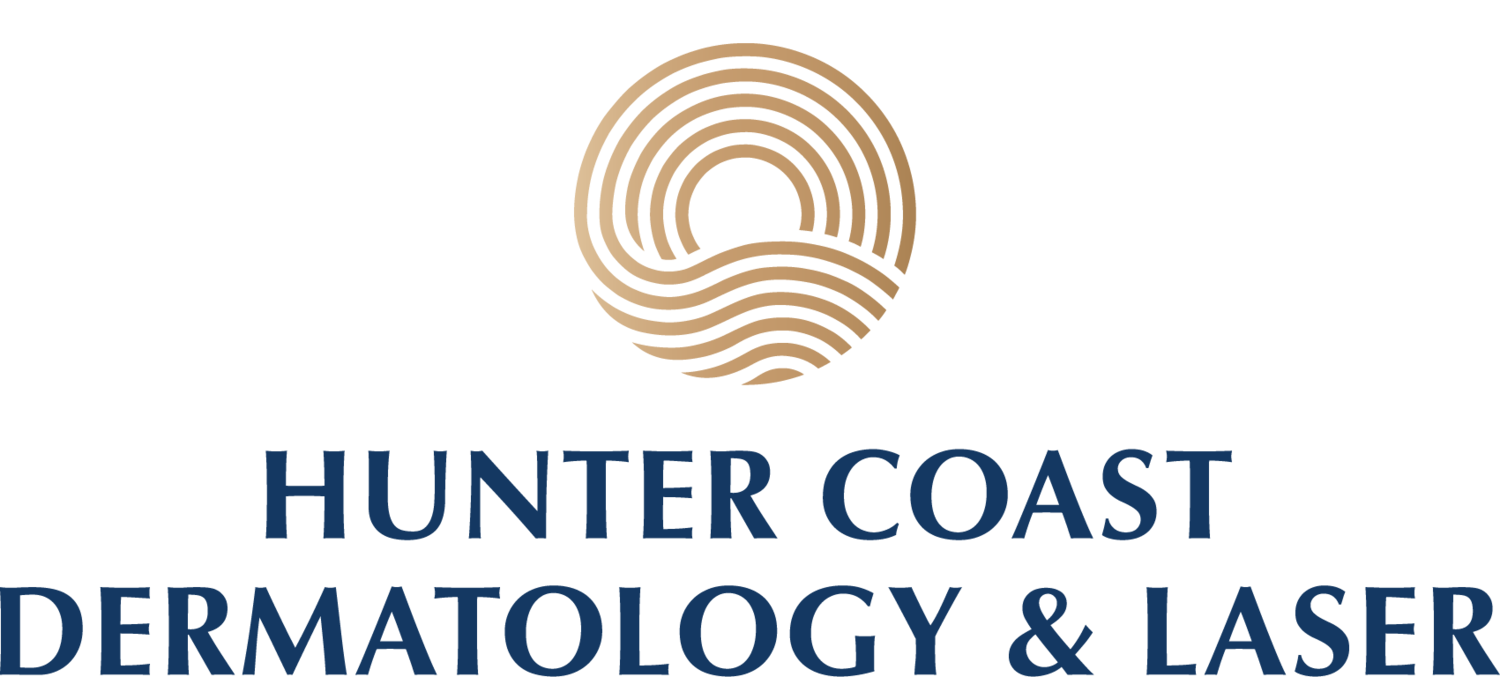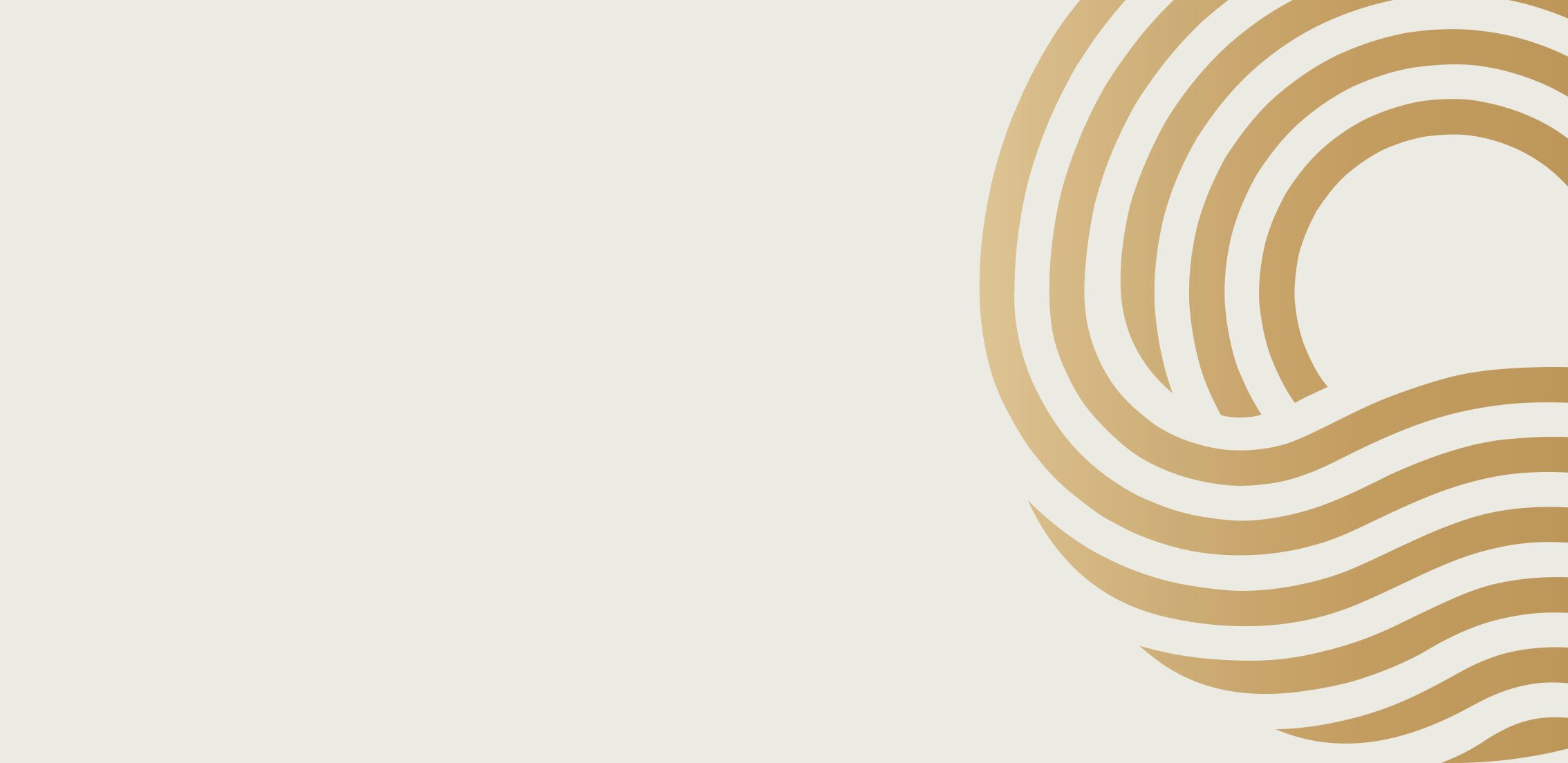
Rosacea
Are you struggling with Rosacea?
Take our 30-second quiz to find out if our tailored, Dermatologist led medical and laser rosacea management treatments are right for your skin concerns!
What is rosacea?
Rosacea is a common chronic skin disease which leads to redness, flushing and pimple-like spots. It most often affects the face of fair-skinned adults over the age of 30. Patients with rosacea often find they have episodes of exacerbation and remission of varying severity. Although it can look similar to acne, it is a different condition.
Before and After | Vascular laser for Facial Redness & Pigmentation
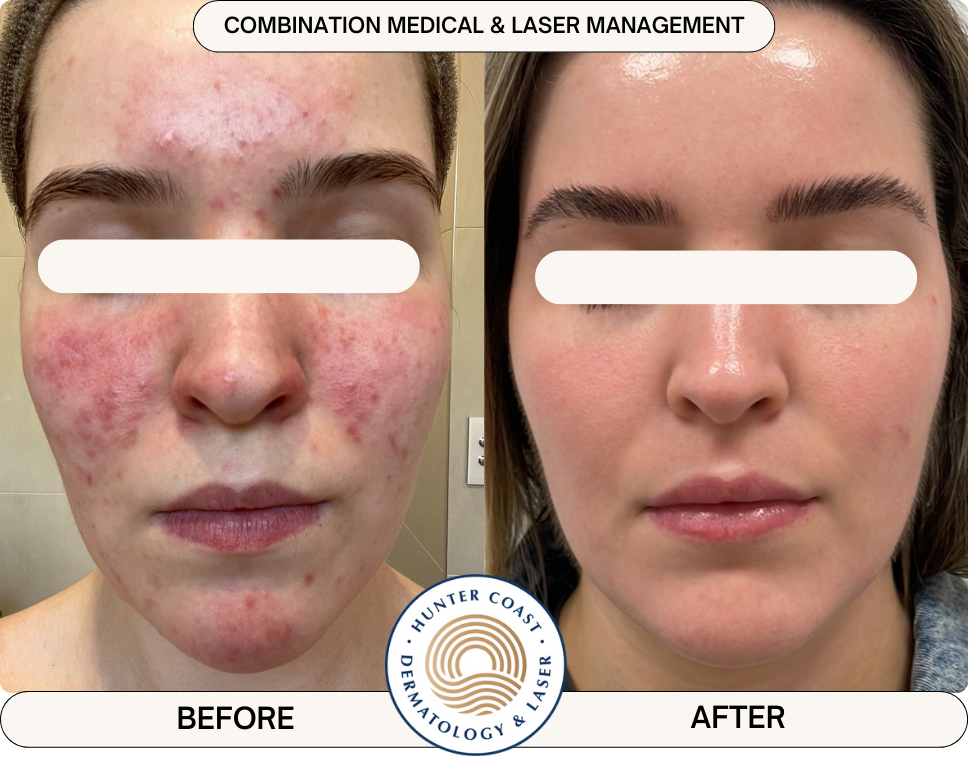

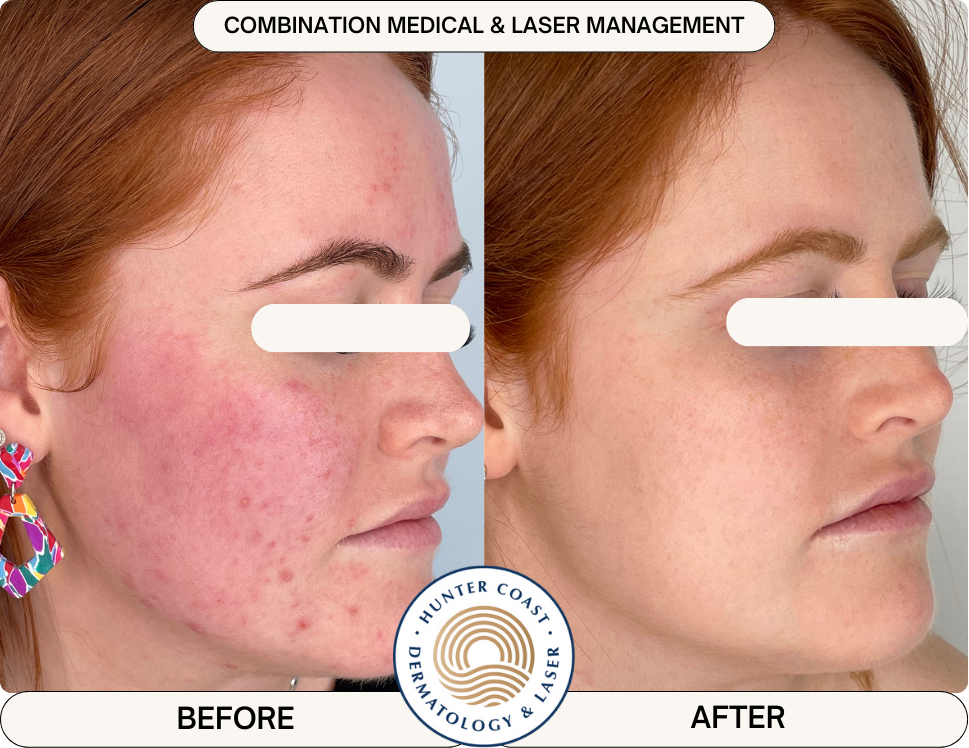
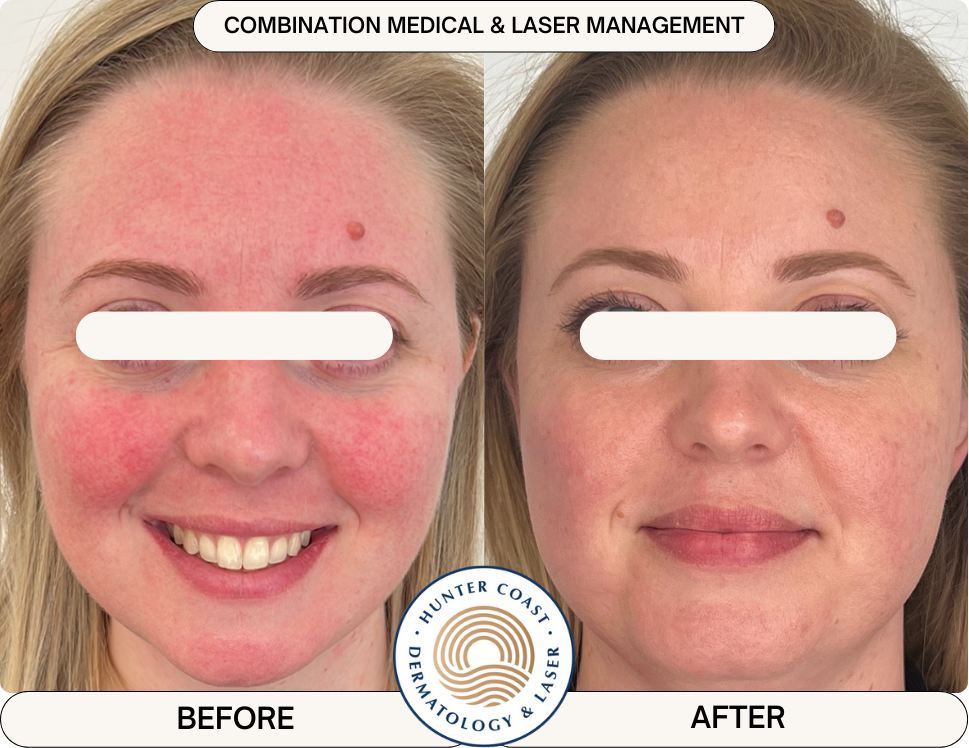
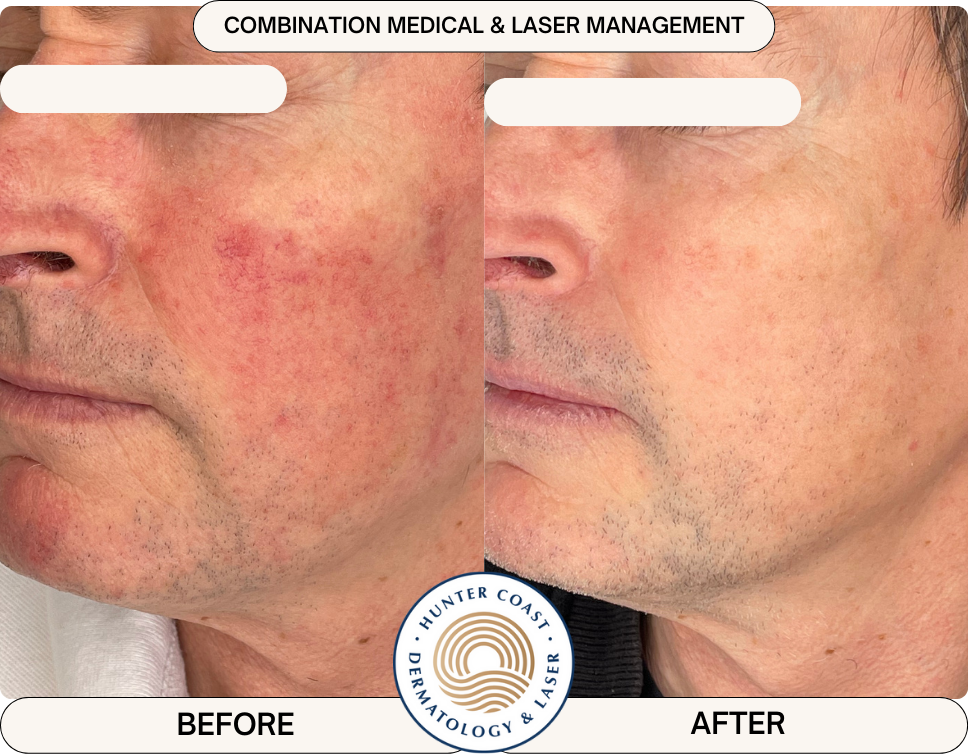
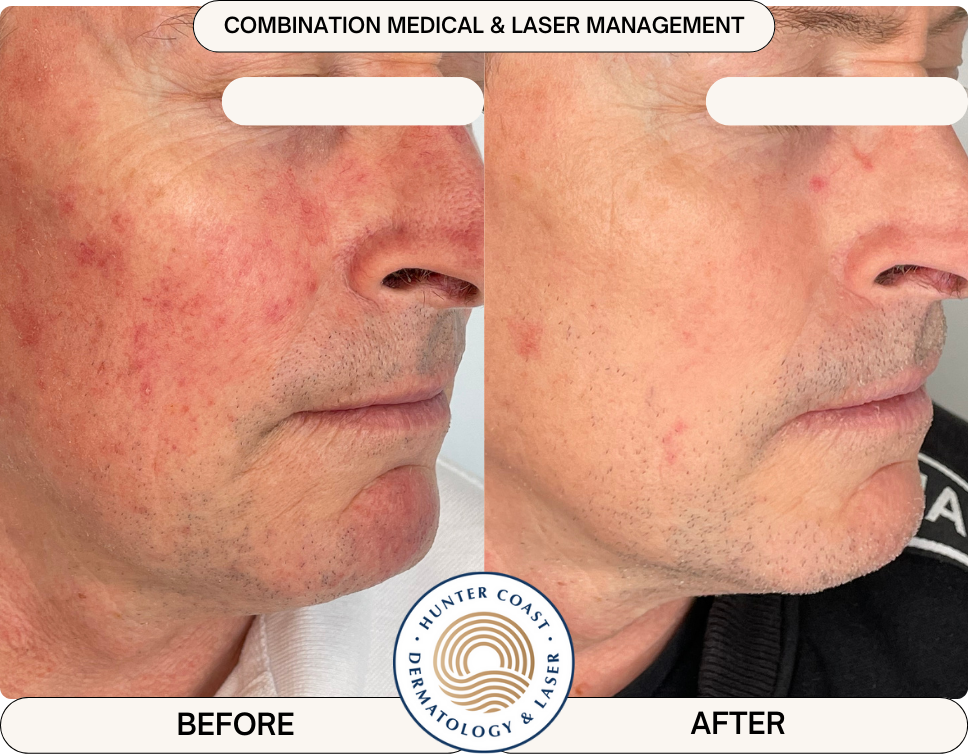
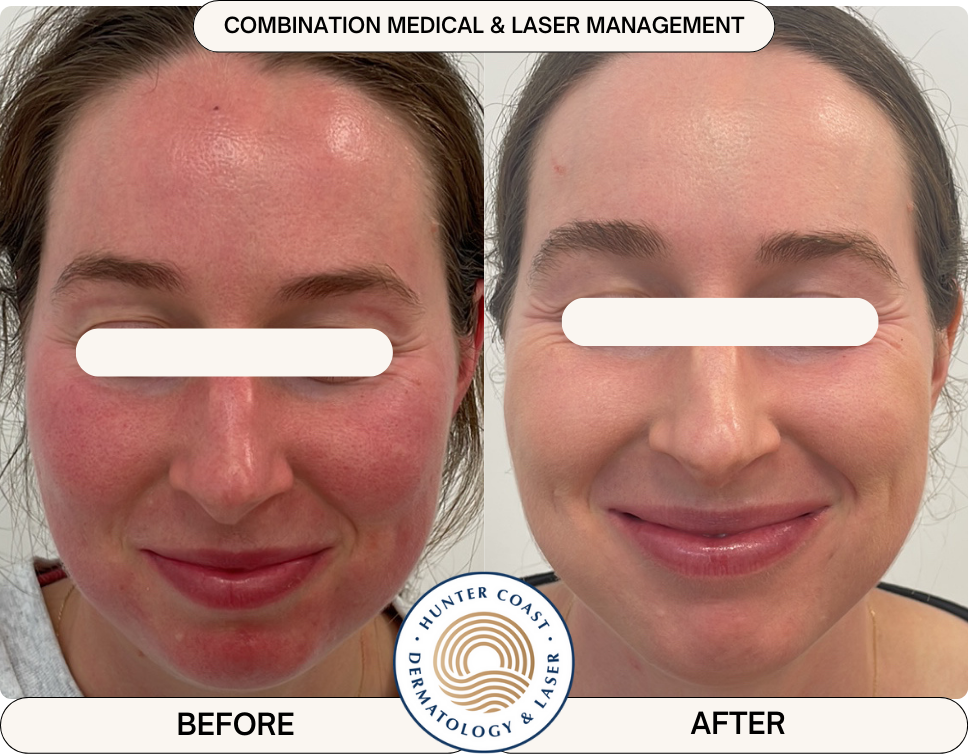
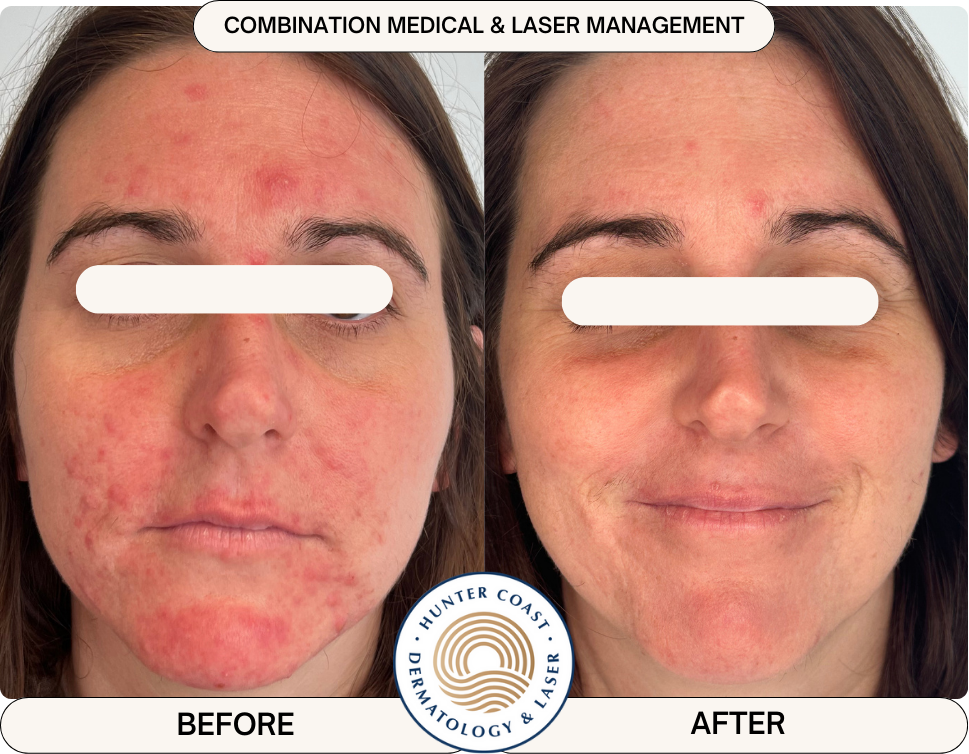
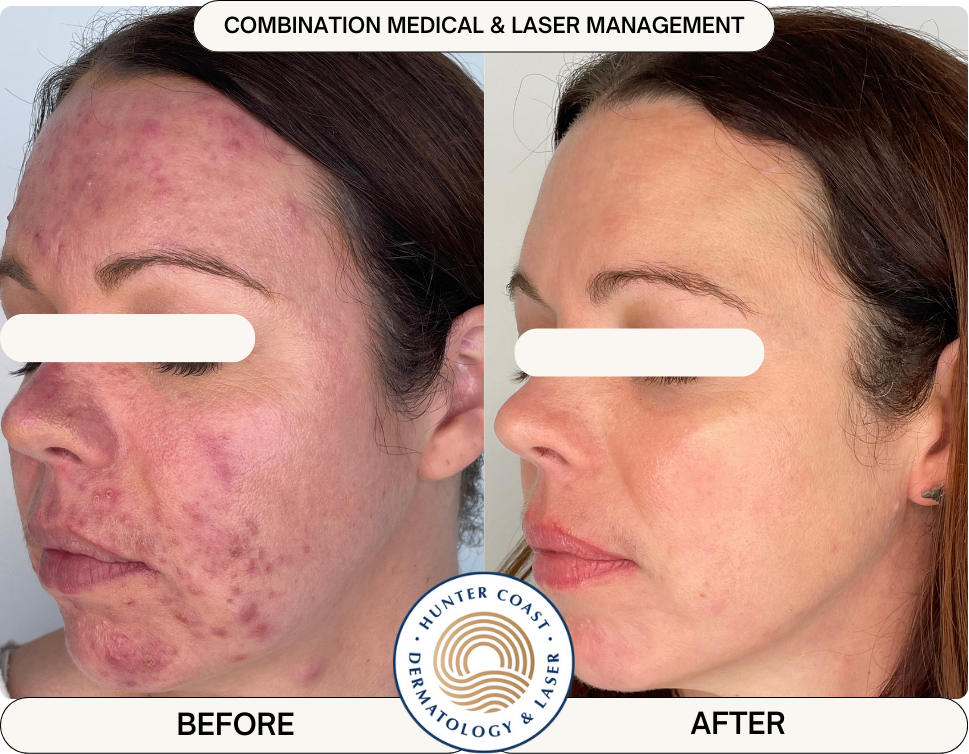
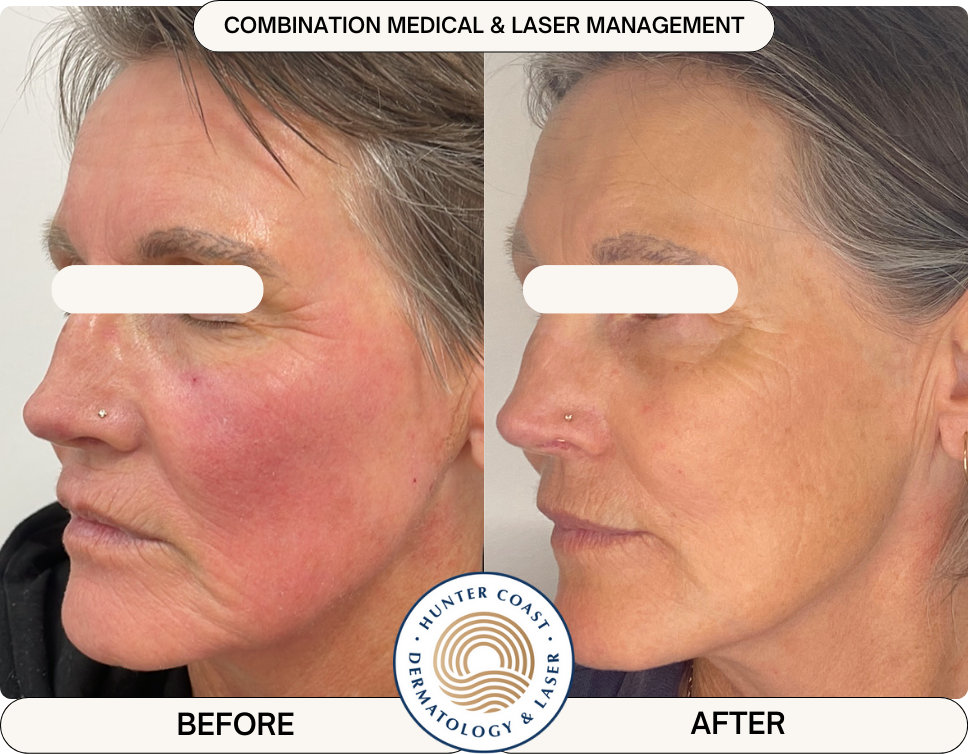
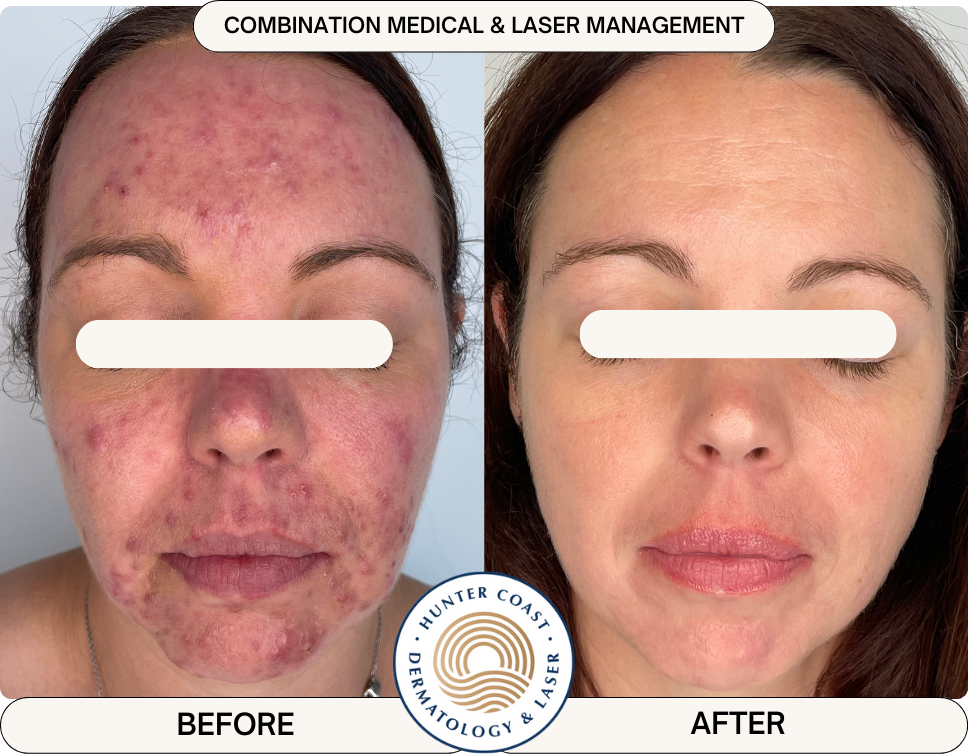
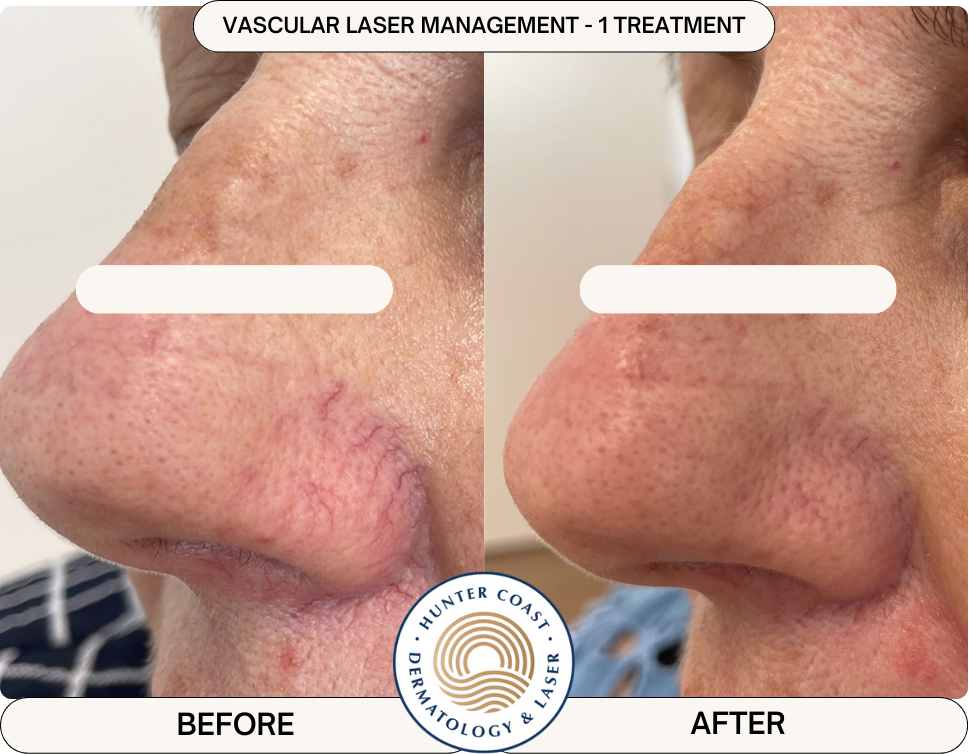
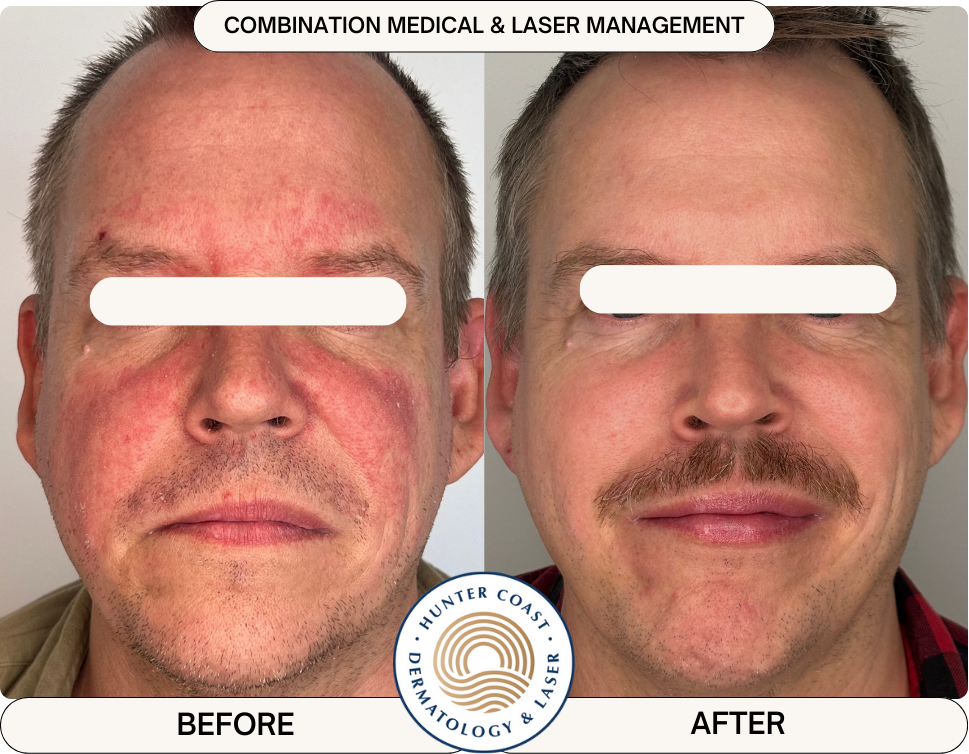
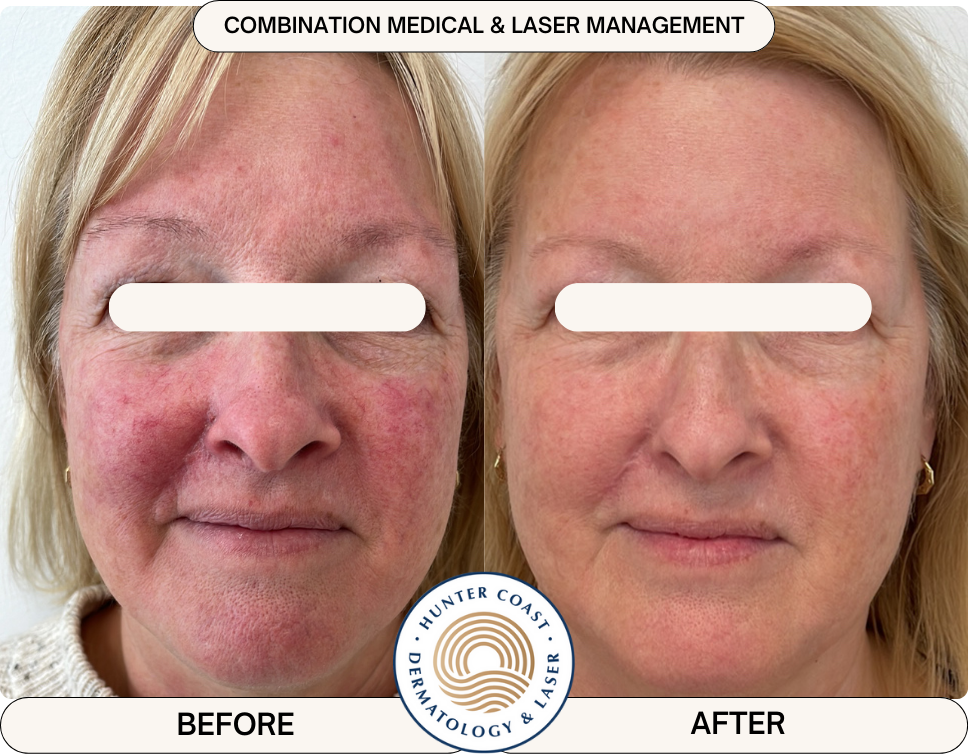
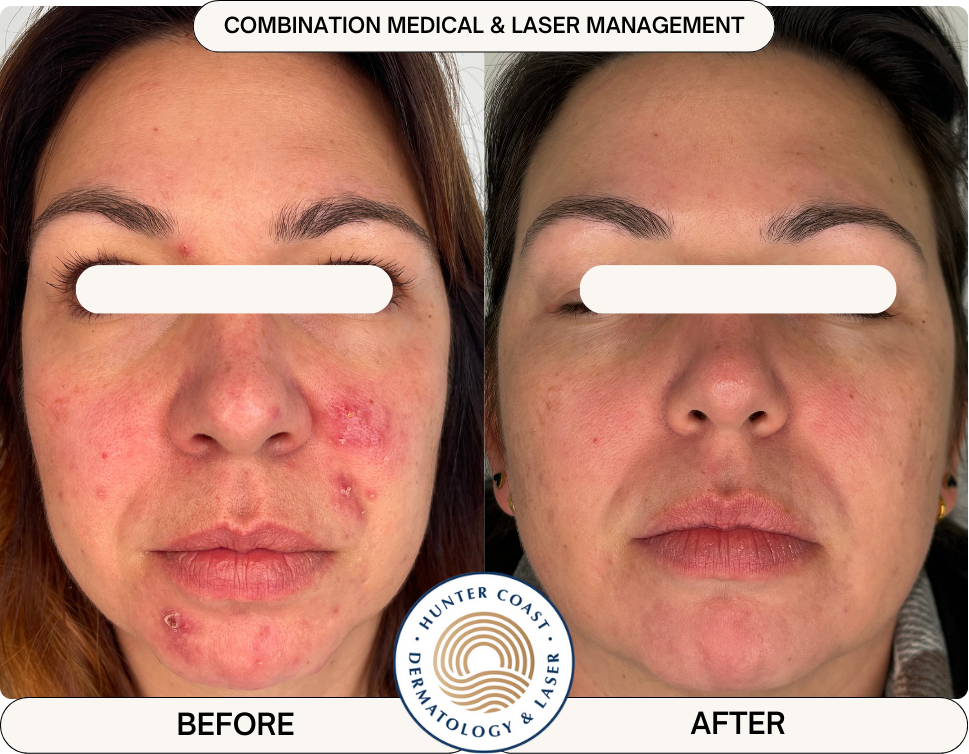


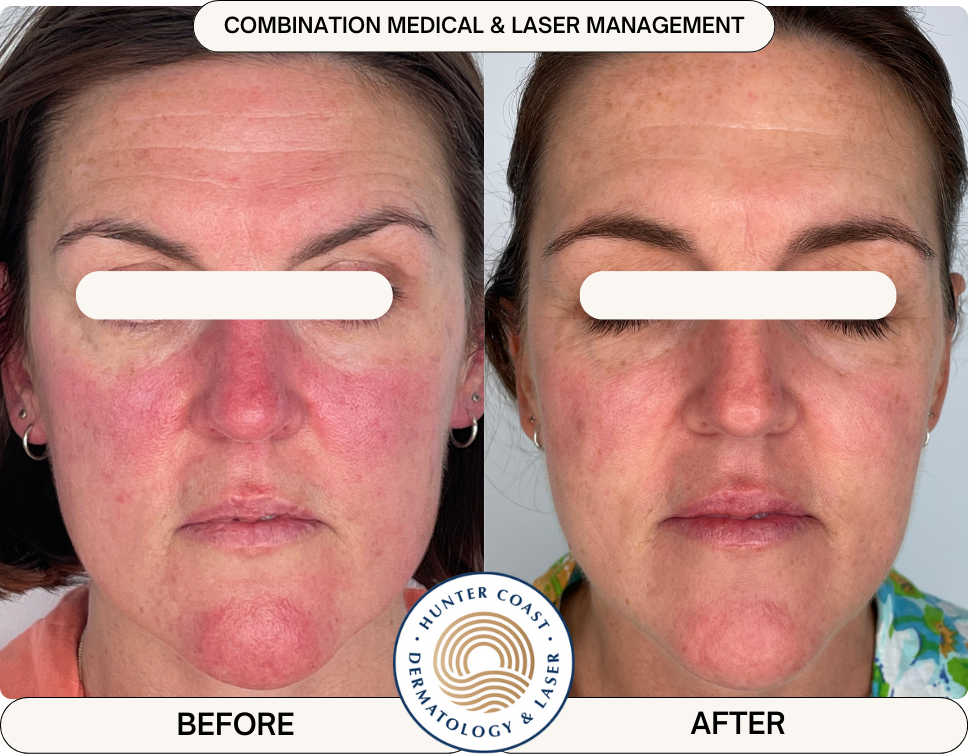
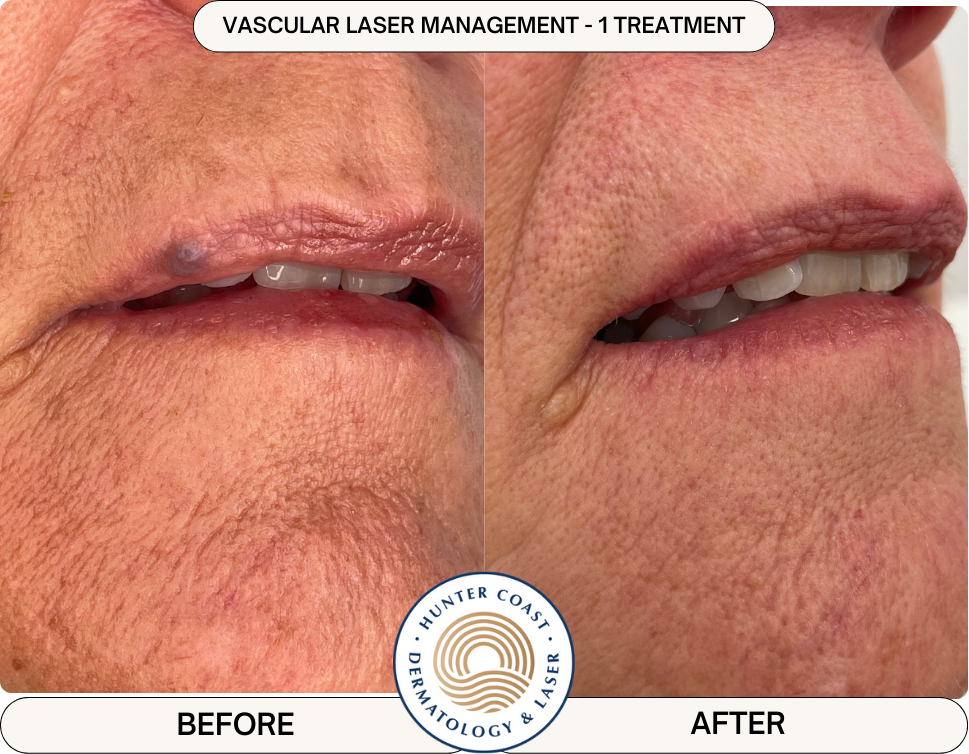
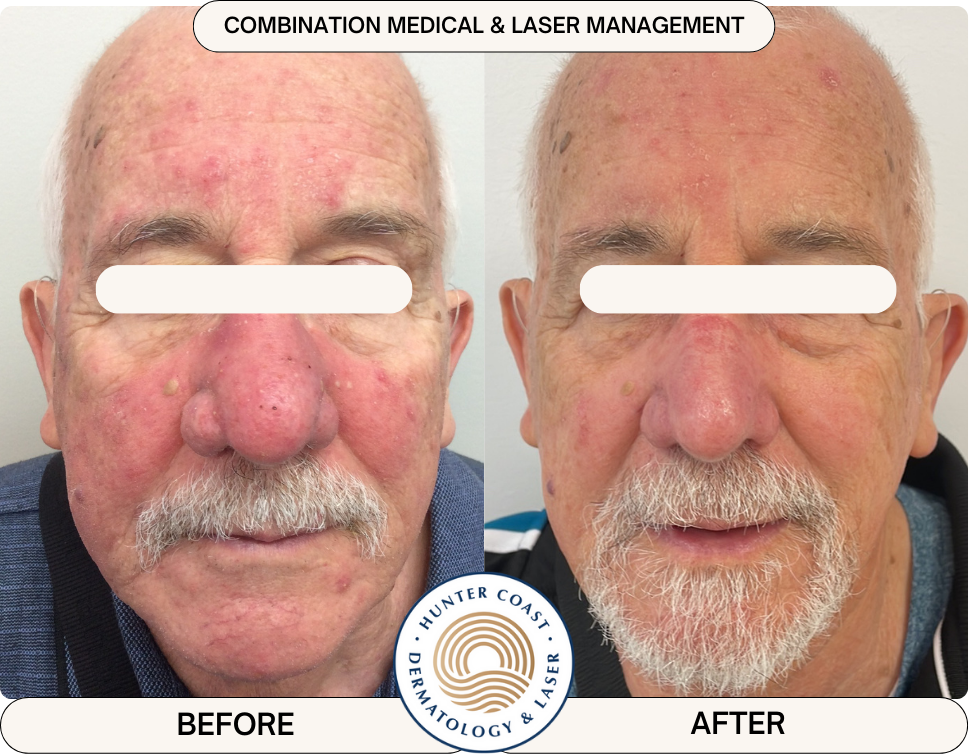

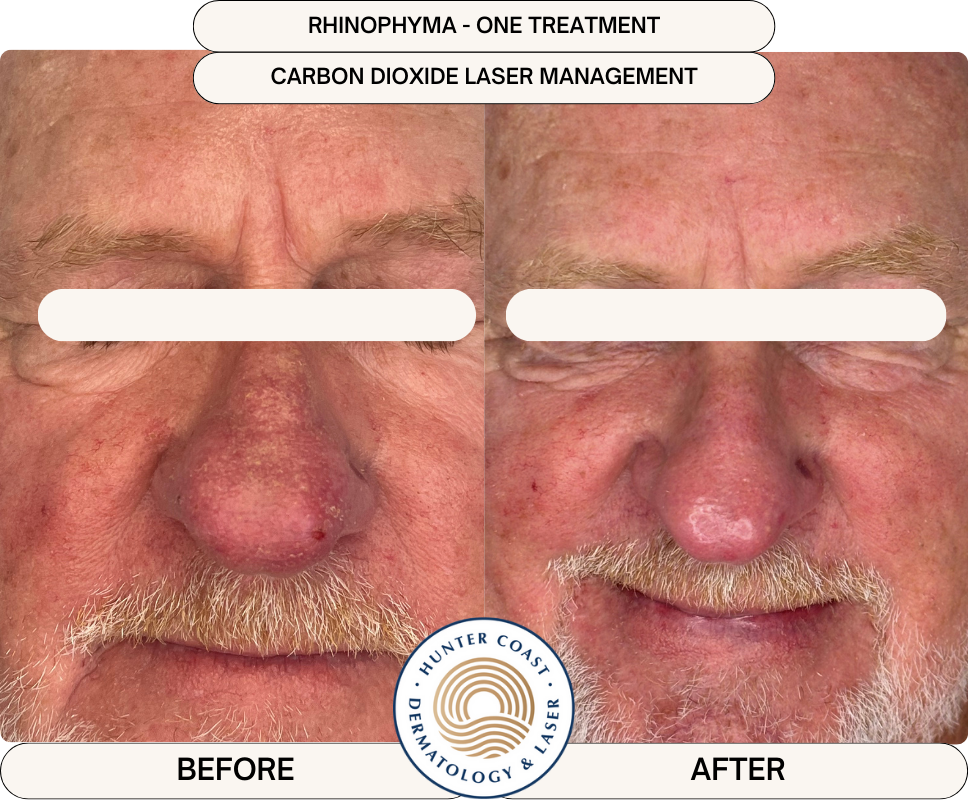
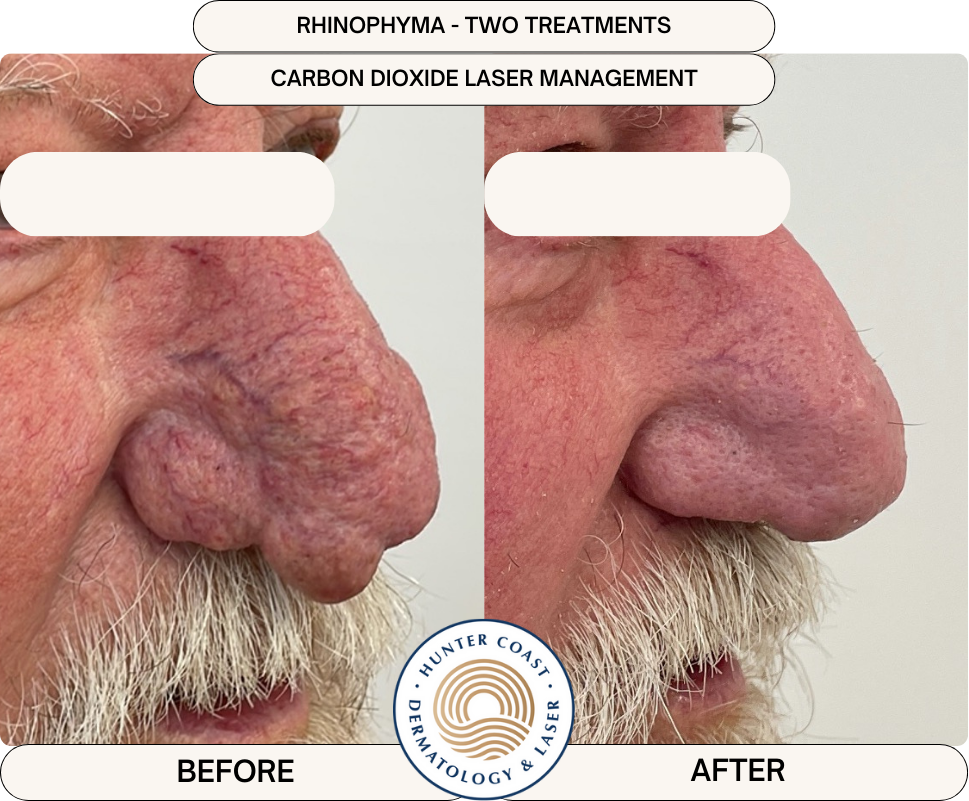
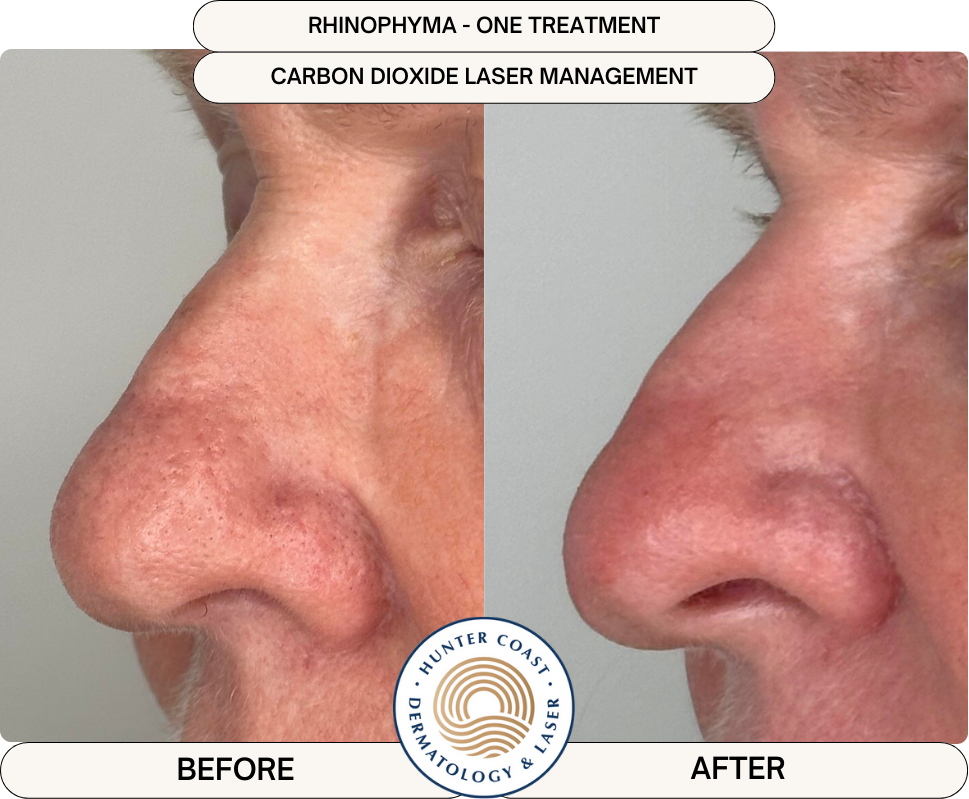
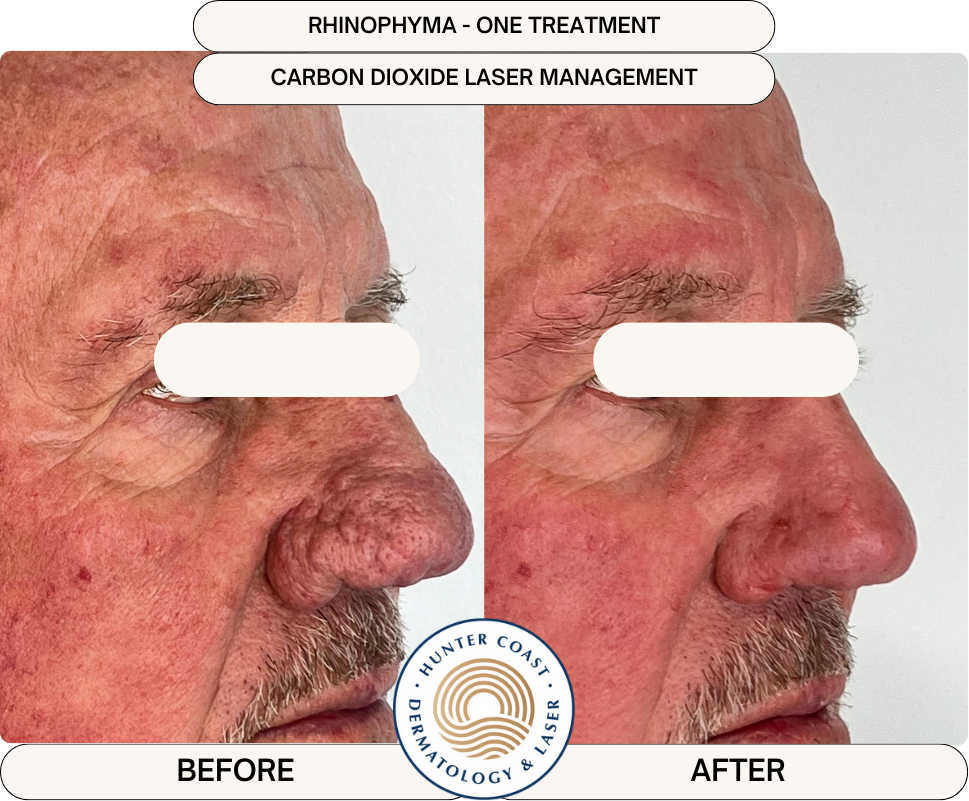
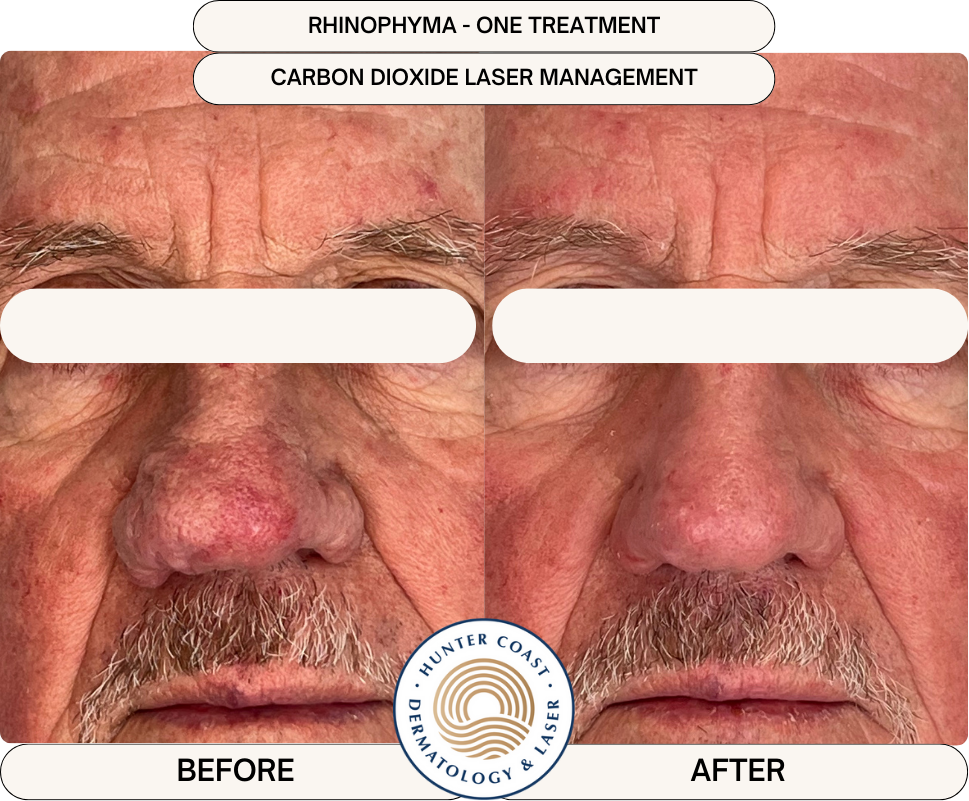
What are the symptoms and signs of rosacea?
Some patients with mild rosacea may only experience a few symptoms, but many patients with moderate to severe cases of rosacea will report a variety of overlapping symptoms. The most commonly reported features of rosacea are:
Red lumps, bumps or pimples on the skin which can fluctuate in severity
Flushing or blushing caused by various triggers
Facial redness which may be intermittent in early rosacea, but become more frequent or even permanent as rosacea progresses
Small broken blood vessels (capillaries) on the face
Sensitive, stinging or easily irritated skin
Red, irritated or gritty eyes (ocular rosacea)
Thickened skin or nose with an orange-peel like texture (phymatous rosacea)
How is rosacea treated?
Rosacea is a medical condition, not just a ‘cosmetic problem’ and must be treated appropriately. There are a variety of treatment options available to treat rosacea, which depend on the severity, predominant symptoms and signs present, and the impact on the patient’s well-being.
It is important for patients who suffer from rosacea to be assessed by an experienced medical professional, so that treatment can be appropriate, tailored to the patient’s individual needs, and most importantly, not worsen the condition.
General treatment measures for rosacea
It is important that rosacea sufferers try to identify any triggers which make their condition worse. Some common triggers include temperature changes, sunlight, wind, spicy foods, hot drinks, alcohol, certain skin care products and stress.
Undertaking good general skin care measures and making sure your everyday skin care products are not causing a problem is crucial. Your dermatologist can discuss your skin care routine with you to optimise this component of your overall management of the condition.
Medical treatment options for rosacea
Medicated creams – these products are useful for treating more pimple-like spots of rosacea
Oral medications – oral antibiotics may be required and have anti-inflammatory benefits. If antibiotics cannot be used or you have severe rosacea, a low dose acne medication may be used.
Vascular laser – this is used when flushing, redness or small broken blood vessels are of primary concern. Generally, two to five laser treatment sessions give the best results with rosacea. After this initial course, sometimes patients may have ‘top-up’ treatments to maintain their results, but this is not always required. Certain types of laser treatment can also help with the pimple-like lesions when medication based treatments don’t achieve the desired result.
Further Resources
https://www.dermcoll.edu.au/atoz/rosacea/
AAD resource centre - https://www.aad.org/public/diseases/rosacea
